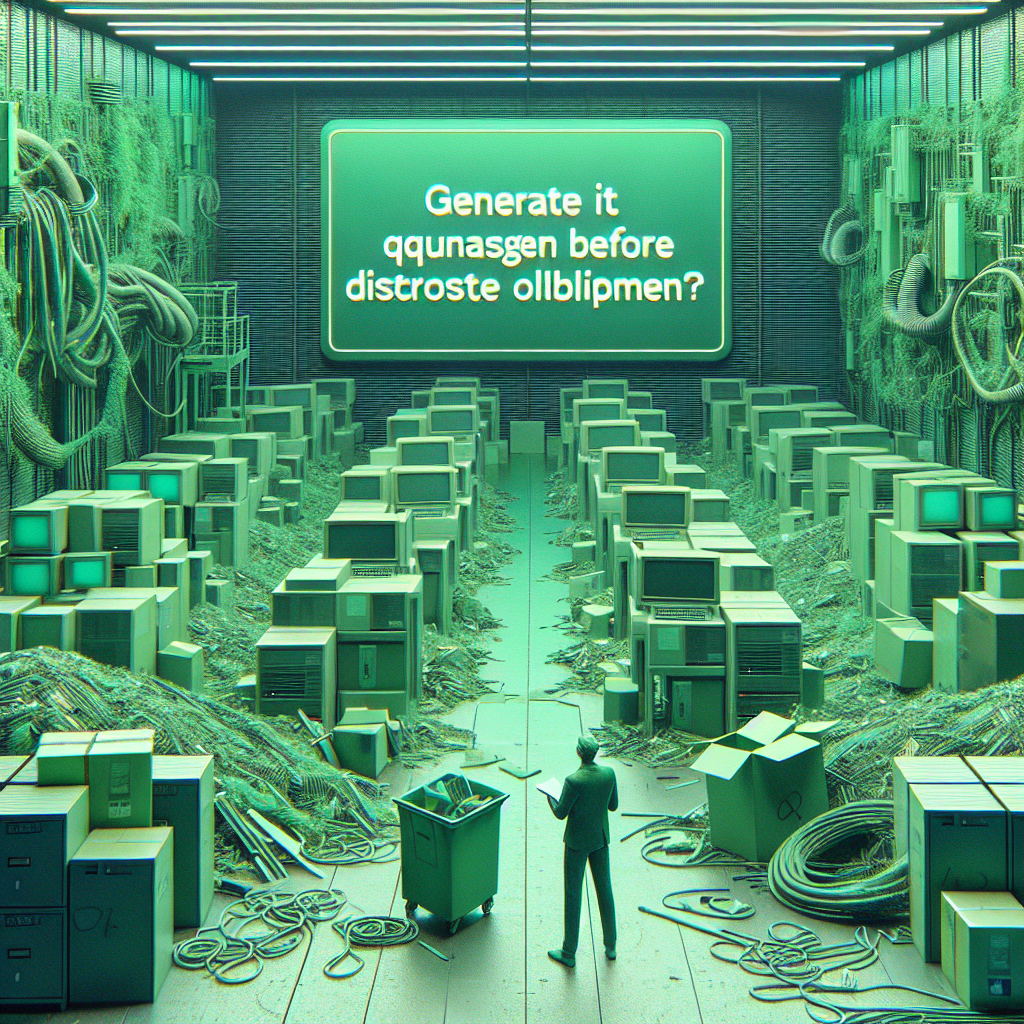Blog Ecobraz Eigre

What do I ask my IT manager before disposing of obsolete equipment?
Introduction
The disposal of obsolete IT equipment is an activity that requires technical, legal and information security precautions. In order for the process to be carried out correctly and in compliance with current regulations, it is essential to clarify any doubts with the IT manager responsible. This article presents the main questions to ask before proceeding with disposal, ensuring efficiency, security and legal compliance.
What is the security protocol for data stored on equipment?
Before disposing of any IT asset, it is essential to ensure the secure disposal of data. According to Ordinance No. 422/2019 of the National Solid Waste Management Information System (SINIR - sinir.gov.br), data stored on devices such as HDDs, SSDs or media must be treated with certified sanitization processes to guarantee the irreversibility of the information. Ask your manager about the use of encryption tools and secure disposal procedures to avoid vulnerabilities and leaks of sensitive information. For more details on secure sanitization, consult the procedures recommended by the hard drive sanitization.
Which equipment is classified as obsolete and suitable for disposal?
Clearly define which devices will be disposed of. Usually, hardware with performance that is incompatible with current technical demands, that presents a risk of failure or that is outside the standard maintenance cycle is considered obsolete. ABNT standards and recommendations from the Ministry of the Environment (mtr.sinir.gov.br) guide the careful selection of equipment for disposal in order to maximize recovery and avoid improper disposal.
What is the process for ensuring environmentally correct disposal?
All electronic waste disposal must follow the parameters of the National Solid Waste Policy - PNRS (Law No. 12.305/2010, planalto.gov.br) to avoid environmental impacts. Ask the manager how electronic waste is disposed of, including the use of specialized and licensed e-waste collection services, as well as the correct final destination in accordance with current regulations. Detailed information and scheduling can be obtained from the official portal for electronic waste collection.
How is equipment sorted and inventoried?
Inventory control is crucial for traceability and disposal compliance. Check with the manager that the devices will be registered with their serial numbers, technical characteristics and state of repair before disposal. This helps with compliance and enables later auditing, in line with recommendations from the Comptroller General and IT governance systems.
What procedures are followed to ensure legal and regulatory compliance?
Make sure that disposal complies with specific legislation, such as CONAMA Resolution 401/2008, which deals with solid waste, as well as ABNT technical standards and guidelines from the National Health Surveillance Agency (ANVISA) when applicable. Questioning how the manager ensures that processes are in compliance minimizes legal and environmental risks.
Is there a formal internal policy for the disposal of obsolete equipment?
An institutional policy formalizes the entire procedure, integrates the sectors involved and defines responsibilities, from IT security to the environment. It also determines the criteria for quality, information security and sustainability. Check the existence of this policy to ensure disposal in line with best practices and current standards.
Conclusion
Conducting the disposal of obsolete technological equipment in a structured manner requires dialogue with the IT manager to ensure data security, environmental and legal compliance, as well as efficiency in the process. Asking the right questions and backing up the answers with official sources and applicable legislation strengthens governance and protects against operational and legal risks.
Disposal of obsolete technological equipment requires dialogue with the IT manager to ensure data security, environmental compliance and efficiency.

Deixe um comentário
O seu endereço de e-mail não será publicado. Campos obrigatórios são marcados com *